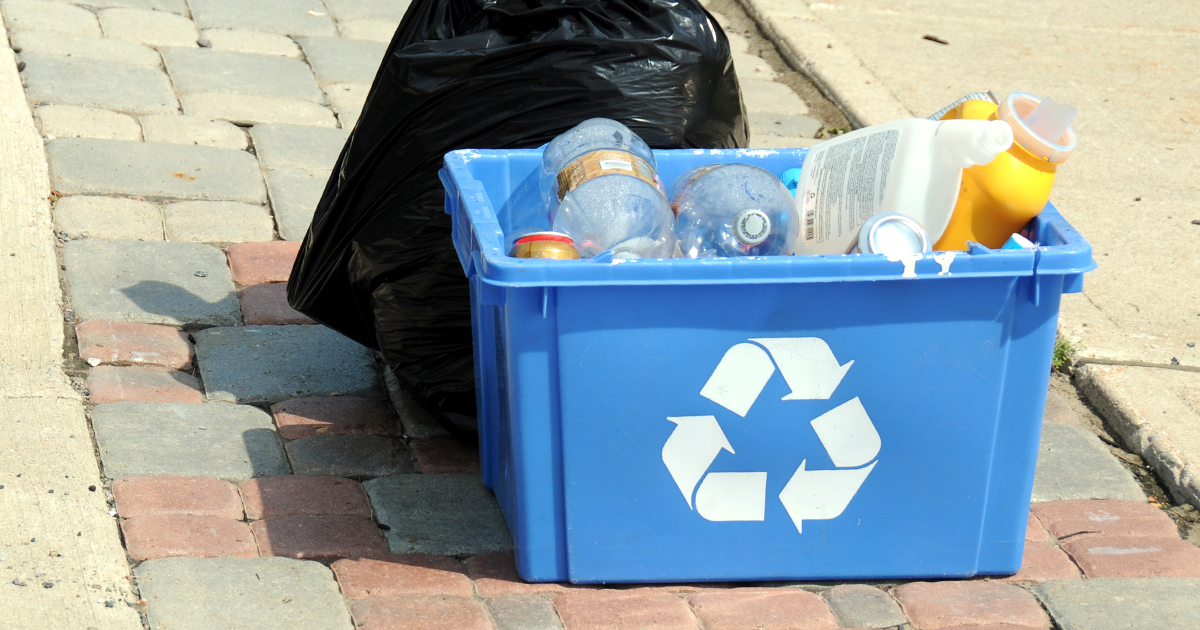This resource has been factchecked by policy experts, using the latest scientific research. Find all our sources linked below.
Recycling will not solve the plastics crisis
For nearly 40 years, the plastics industry has promoted plastics recycling as the antidote to single-use plastic trash. In truth, plastics recycling is a technically problematic and polluting process that generates higher-toxicity plastic. Recycling will not solve the plastics crisis.

What is mechanical recycling of plastics?
Plastics recycling is a mechanical process that involves sorting the plastic, grinding it into flakes, washing the fragments, filtering, melting, and blending the recycled material with virgin plastic to make new products. Less than 6% of plastic gets recycled in the U.S. Recycling costs more than making plastic from virgin fossil fuels.
Only a limited subset of plastics can actually be recycled, and then only once or twice because the quality of the material declines (unlike, say, glass, which can be recycled over and over). Plastics also foul the valuable waste streams of those materials that can be successfully recycled, such as metals, glass, and paper.

Plastics recycling is thwarted by the countless combinations of 16,000 synthetic chemicals and fossil fuel polymers in plastics. Even plastics with the same numbers stamped on them contain different chemicals that cannot be recycled together. There is no transparency as to what chemicals are used in plastic, and no way to separate plastics by what they are made of. In addition, items made with mixed materials, like chip bags and candy wrappers, incorporate layers of metal and paper alongside multiple plastics—these cannot be separated and recycled.

Plastics #1 (water bottles) and #2 (milk jugs) are most readily recycled, and some jurisdictions may recycle #5 (yogurt cups). Plastic bags and wraps (#2, #4) can gum up the recycling machines and have virtually no market value. Plastics like PVC #3 and Styrofoam #6 are too toxic to recycle in most circumstances.
The technical barriers to recycling have not stopped the plastics industry from waging a decades-long campaign to convince people that the real trouble with plastics is litter and that trash collection and plastics recycling are the answer. A 2024 Center for Climate Integrity report unearths a wealth of documentation showing how plastics industry executives have misled the public, all the while knowing that large-scale plastics recycling is not technically or economically viable.
Plastics recycling fouls the environment
Plastics recycling pollutes waterways with PFAS and microplastic particles, exposes workers to airborne plastics, and contaminates recycled plastic products. Even when using state-of-the-art water filters, recycling facilities release vast amounts of microplastics into waterways. These tiny pieces of plastic contaminate groundwater, drinking water, and irrigation water and may impact health when they are consumed via food, water, and air.
Recycled plastics raise red flags for consumers as well. Studies are finding elevated concentrations of toxic chemicals in recycled plastic children’s toys, water bottles, and food containers. This includes PFAS, phthalates, flame retardants, bisphenol A, and UV stabilizers. Heavy metals and other toxic chemicals can leach out, disrupting endocrine systems, increasing cancer risks, and causing other health harms. Microplastics are found on both sides of the human placenta and in human blood clots. A 2023 study identified 853 chemicals in plastic #1, many of them toxic. There is minimal oversight or regulation of what goes into plastic. The higher risk from recycled plastics may result from chemicals added during recycling, contaminants in the waste stream, and reactions between chemicals.

What is “advanced recycling”?
Plastics industry lobbyists are promoting pyrolysis—a type of incineration—as a new form of recycling. Most so-called “advanced recycling” (a.k.a. “chemical recycling”) facilities burn plastic, creating harmful air pollution, contaminated oil, and toxic ash. The plastics lobby is trying to convince EPA and Congress that this incineration process should be classified as recycling or manufacturing rather than solid waste incineration. Such a determination would leave companies free to emit unlimited amounts of toxic air pollution without any monitoring, reporting, or control technologies. A different but equally problematic type of “advanced recycling” tries to use a solvent-based process, combusting large amounts of the flammable and explosive fossil gas butane. The process has been riddled with technical and economic failures.

PureCycle facility, Lawrence County, OH, Photo: Ted Auch, FracTracker Alliance
Plastics recycling and environmental justice
Many plastics recycling facilities are located in historically marginalized communities, subjecting people to air pollution, water contamination, and a high risk of fires and explosions. In addition, the U.S. sends vast amounts of plastic waste overseas each year, much of it to countries in the Global South, including Mexico, Malaysia, Vietnam, Indonesia, Thailand, El Salvador, Hong Kong, Honduras, India, Pakistan, Turkey, Ecuador, and Guatemala. Much of the exported plastic trash is landfilled or burned in open pits, though officially it gets recycled.
The Basel Convention regulates the international trade in plastic waste. Most of the world’s countries have joined the convention, but the U.S. has not ratified it and has opposed its plastics export amendments.
The false promise of recycling is used by industry to justify an exponential increase in plastics production. Plastic production, transport, and disposal subject communities to chemical disasters and to nonstop toxic air emissions. People living at the fence line suffer the greatest harm.

Burning garbage at Dandora dumpsite, Nairobi, Kenya. The sprawling dumpsite receives approximately 2,000 tons of waste daily, including plastics. (Allan Muturi/AP)
Take action
Recycling is part of the plastics industry’s decades-long campaign to obscure the recklessness of single-use plastics and the extreme harm to frontline communities. In truth, plastics recycling is hardly a solution but rather an environmentally harmful way to “downcycle” a small subset of waste plastic, making low-grade plastic that will ultimately be landfilled or incinerated.
It will take systemic, structural changes to address the plastics crisis. Join Moms Clean Air Force to advocate for reducing plastics production and cutting toxic air pollution at every point in the plastics supply chain.
Learn more about Moms' work on petrochemical pollution.
Full list of sources.
Released: May 2024




